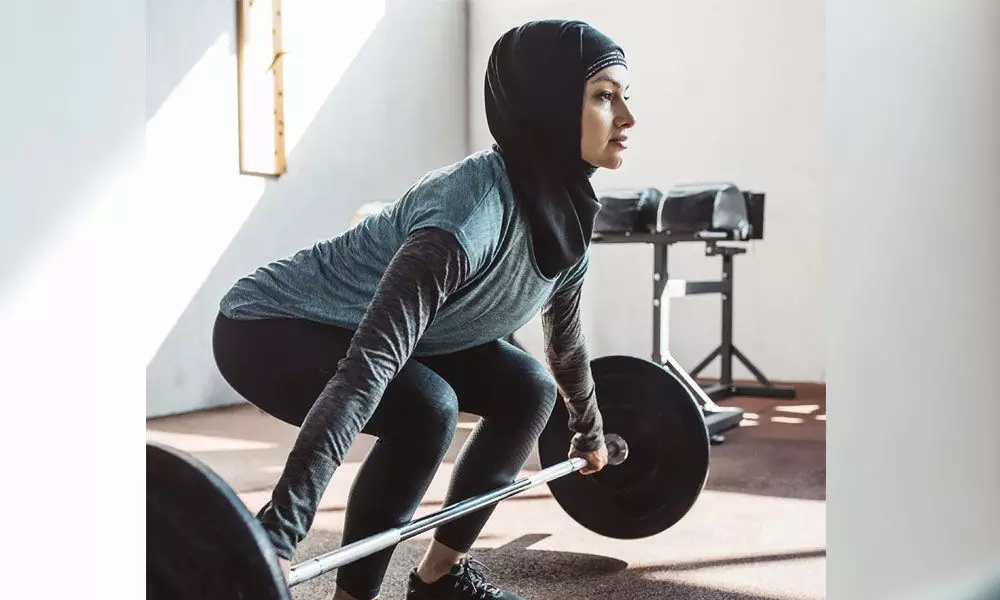For a healthy Ramadan fasting

For a healthy Ramadan fasting
Fasting during Ramadan is as much a mental exercise as it is a physical one.
Fasting during Ramadan is as much a mental exercise as it is a physical one. Exercising and maintaining a healthy lifestyle during this month can be difficult when you cannot drink water or eat from sun-up to sundown. Although one may differ in how we prepare our minds and bodies, here are some tips that can help women to adjust to the daily fast in Ramadan:
Stay hydrated
Don't dehydrate your body. Try drinking fluid several times throughout the night, even if you aren't feeling too thirsty. Drinking water as much as possible between Iftar and Suhoor can help reduce your risk of dehydration during the day, especially if you're planning to workout.
Variety is the spice of life
A variety of foods during the evening is essential. Woman body needs good nourishment to compensate for the stress of fasting. So eat whole grains, vegetables, fruits, lean protein and healthy fats.
Portion size is important
When you are hungry, put less stress on your body than by eating huge amounts.
Talk with a dietitian or other healthcare provider to get more specific advice based on your situation. Then, enjoy, and celebrate the most joyous month of the year! Enjoy meals with others, exercise goodwill, and be patient with your body and with others.
Do's and don'ts exercise during Ramadan
• Do light workouts during the day, such as going for a walk and leaving any high-intensity exercises for after you've broken your fast.
• Eat high protein and take a high-quality diet, you will not lose a lot of muscle mass, but you will likely lose some. That's just something you have to accept.
• Do take walks outside. When we go for a walk, our hearts pump more blood and oxygen to our organs, including the brain. Walking does not need much conscious effort, so it is possible to do it while fasting.
• Do focus on maintaining muscle and overall health with a regular exercise regime so that once Ramadan has ended, you may return to strength training sessions feeling fit and ready.
• If dizziness or lightheadedness persists, it is advisable to take a rest day, hydrate fully and try the next day again.
• Don't forget to be kind to yourself. Remember that your body will adjust after a few days. Fasting becomes easier as time progresses. The first couple of days are always the most difficult, with low energy and increased appetite, but it quickly becomes your new routine, and your body adjusts to its new schedule. It's critical to maintain a sense of perspective; Ramadan isn't a diet, and while remaining healthy is crucial, it's not the time to set personal records or get in the greatest shape of your life.
• Do yoga and/or pilates. Low-impact sessions such as yoga or pilates and mobility routines are ideal for Ramadan because they balance your mind and body in ways that your regular workouts will not.















